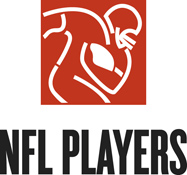At this year’s SEC Media Days, Alabama football head coach, Nick Saban, said that the NFL Players Association (NFLPA) needs to do more to protect student-athletes from unscrupulous agents who do not have the student-athletes’ best interests in mind when offering anything of value to them. Saban’s statement immediately gave people a place to point the finger. Questions started to surface concerning whether the NFLPA is turning a blind eye to the lingering problem. Could the NFLPA be doing more? Should the NFLPA be doing more? And what exactly can the players association do?
First of all, the NFLPA does have some power to regulate the agents that are licensed to practice within the confines of the NFL, but that power is extremely limited. The players association certainly may decide who is worthy to be licensed to represent its member players and may also suspend or revoke an advisor’s license if it is found that the advisor is not fit for the profession. But the NFLPA has no way to penalize a runner, financial planner, marketing agent, etc., all of whom may be involved in passing benefits to student-athletes. Additionally, the NFLPA can do no more than suspend/revoke a license or levy a fine on a certified advisor. The risk may be worth it to an agent. He may see the possible consequences, see the possible gain from acting unscrupulously, and choose to roll the dice. The NFLPA can’t put an agent, or anybody else for that matter, away in jail. Some states can, depending on the wording of their athlete agent statutes.
And what about suspending an agent’s license to practice within the NFL? Shouldn’t that be enough to deter an agent from pissing anyone off on the NFLPA’s Executive Committee? When David Dunn, Chairman and CEO of Athletes First, was suspended 18 months by the NFLPA for possibly stealing clients from Leigh Steinberg, it barely affected his business. In fact, today, Athletes First is one of the most prominent football agencies around. The NFLPA prevented him from signing his name on an NFL uniform contract for the stated period, but do you think he wasn’t recruiting and that others at his company were not signing players? Thus, suspending a prominent agent’s license may not even be all that effective on its own, since others at his company could theoretically work on his behalf.
This post is not intended to let the NFLPA entirely off the hook for regulating agents’ behavior and enforcing punishment when they do not adhere to the proscribed standards. My sole intention is to make people aware that even if the NFLPA decides to ramp up its punishment, it can only do so much. Thus, Nick Saban should consider the other ways that the agent profession may be regulated, and others should open their minds to a new statutory scheme. That new statutory scheme will be discussed in an article I am co-authoring, which will hopefully hit a law review later this year.

3 replies on “Asking Too Much Of The NFLPA?”
One thing Coach Saban and other institutions need to address, is the parents of prospective clients, wanting a piece of the action, just to meet with the prospective client.
Even when an agent just desires to have a meet and greet, they are often confronted with having to pay a family member or family “rep” for the opportunity.
This issue has numerous parts and all should not be placed on the agent community.
Great article pertaining to state laws related to agents not being enforced. As well as the FTC ruling of 2004. Which I know you wrote about in a previous article. Let me know your thoughts.
Link:
http://sports.espn.go.com/ncaa/news/story?id=5470067
It is a fantastic article. I know a couple of the AP writers who worked together on it. Great digging. Things need to be changed!